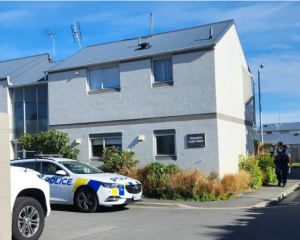What caused the death of Moko the dolphin remains a mystery after a post-mortem, the Department of Conservation (DOC) says.
Boat strike and drowning through net entanglement had been ruled out as potential causes in a report released today.
There were no obvious signs of extensive bruising or skeletal fractures, making blunt trauma an unlikely cause of death, and no usual signs of drowning were present, Massey University pathologists said.
The pathologists were "unable to establish cause of death due to post mortem decomposition", the report said.
The only potential contributing factor identified was evidence of liver disease.
DNA results to confirm that the carcass is that of Moko could still be eight weeks away, but the pathologists had examined the dolphin's teeth and compared them to photos of Moko's teeth, finding they were in exactly the same positions and angles. They concluded the carcass was unlikely to be any other dolphin.
DOC spokeswoman Katrina Knill apologised for being unable to shed more light on the cause of death.
"We share the community's grief at his loss and hope that his legacy will be an increased level of consideration and care for the marine environment and its inhabitants by all New Zealanders."
DOC yesterday announced Moko's remains would be buried on the shore at Matakana Island, north of Mt Maunganui, where his carcass was found on July 7.
The decision settled debate over Moko's final resting place, with northern Hawke's Bay and the Bay of Plenty both vying to host the dolphin's burial.
Moko's many admirers would have a chance to farewell Moko at a memorial service at Mataatua Reserve near Whakatane where his remains will be taken before being buried on the island, Ms Knill said.
"Moko will travel via Whakatane where all are invited to attend a memorial service for him at Mataatua Reserve, Wairaka near the Whakatane river mouth," Ms Knill said.
DOC's Tauranga area manager Andrew Baucke said the decision to bury Moko on the island was made after consulting with local iwi over the weekend.
"Given that Moko washed up on the shores of Matakana, we have been guided by Ngai te Rangi who have kaitiaki (guardianship) status for the island to come to this decision," he said.
"This is also consistent with our policy that local iwi have access to the remains of stranded marine mammals if they want it."












